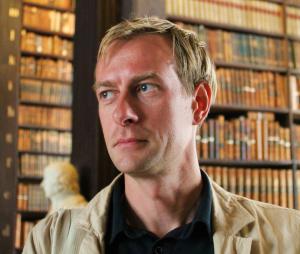
 The Digital Scholarship Center (DSC) at UO collaborates with faculty and students to transform research, scholarly communication, and instruction using new media and digital technologies. Based on a foundation of access, sharing, and preservation, the DSC provides digital asset management, digital preservation, training, consultations, and tools for digital scholarship.
The Digital Scholarship Center (DSC) at UO collaborates with faculty and students to transform research, scholarly communication, and instruction using new media and digital technologies. Based on a foundation of access, sharing, and preservation, the DSC provides digital asset management, digital preservation, training, consultations, and tools for digital scholarship.
Visit them at 142 Knight Library, and learn more about their services on the DSC website.
Karen Estlund and John Russell of the DSC sat down with me recently to discuss some of the great opportunities available to students right now at the DSC:
1. Graduate Affiliates Program CFP (deadline December 1): The DSC Graduate Affiliates program, which will take place during Winter and Spring terms, is an opportunity for a small group of graduate students to benefit from the resources of the Digital Scholarship Center and engage collaboratively with each other. Affiliates will receive close consultation and assistance on their research and participate in colloquia and other special events.
To Apply: Send a CV, a brief research proposal that describes a research or instructional project to be carried out as well as what assistance might be needed, and a brief letter of support from your advisor. The deadline is soon: December 1.
2. Winter Course Offering: The DSC will again be offering LIB 607: Digital Scholarship Methods this Winter term on Mondays 9-11:50am. The course will be both a survey of scholarship that makes use of digital approaches and an introduction to tools for digital scholarship. A draft syllabus is online: https://library.uoregon.edu/node/4570
3. The DSC welcomes proposals for “on demand” workshops or credit courses that meet the needs of students or faculty. The Libraries’ Data Curation course (offered Spring term) and Arduino workshops were created due to student interest. DSC staff can help with portfolio building skills as well.
Have ideas for workshops or courses? Contact Karen Estlund (kestlund@uoregon.edu) or John Russell (johnruss@uoregon.edu).
4. The DSC is home to a Sandbox Lab that is open to students, faculty, and staff. They have two Macs, an HD 64” flat screen, hardware and software for teleconferencing, scanners, and a lot of software common to digital scholarship (for instance, Gephi, R, and Google Earth). Both Macs have Oracle VirtualBox installed, so people can work with software in a Mac, Linux, or Windows environment.
The DSC team is willing to install open source software by request and they also have Amazon web services space for those who want to experiment with server-based tools.
5. The DSC hosts and provides support for theses and dissertations in Scholars Bank. They can help with copyright questions, with submission, and they can work with students to provide access to any supplemental data associated with their graduate research. Contact scholars@uoregon.edu with questions.
Current NMCC students are invited to a catered reception to meet media scholar Wendy Hui Kyong Chun.






 Wendy Hui Kyong Chun will give the keynote address on Habitual New Media. Chun is the
Wendy Hui Kyong Chun will give the keynote address on Habitual New Media. Chun is the 

